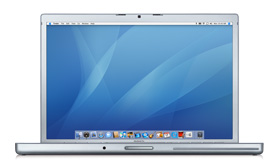
First, this morning NetNewsWire 3.1 was released, with what was announced as primarily a performance-improvement based release. This is great news. Not that NetNewsWire was a pig, or anything, but when they take the time to work on the code code of an app (like I have been doing to the server) it shows a commitment to the app at a level you don't see when you're just trying to add new features to make users happy. So, Great Job to Brent S. on the release. I'm running it already.
The next bit of news that comes from Brent and the NewsGator folks is that NetNewsWire is now freeware. That's right - totally free. All of the NewsGator 'personal' products are free. They look at this as the way to get mind-share and name recognition and it's probably going to work. There are a lot of people using something like NetNewsWire for personal reasons, and if they see a professional app from the same guys, they'll be more likely to give them the nod - all else being equal.
And at the same time, there's a great article on Rogue Amoeba about the devaluation of all software for a platform when a good piece of software is available for free. The posting says:
There's certainly a place for free software. But when a fully-featured product such as NetNewsWire is suddenly free, it effectively reduces the value of other for-pay software products. "Why should I have to pay for quality tools, when this quality tool is free?", the thinking goes. When something is given away for free, its perceived value is lowered. If software is treated as valueless, it becomes much, much harder to sell. One need only look at a quote from news coverage discussing the move to freeware to see this in action: "And thank [NewsGator] for this grand gesture...While you're at it, do pray that a few other software companies get inspired by this move and follow suit."
So very true. He continues with the browser battle and how when Microsoft started, it was far far behind Netscape, but they threw their weight (and money) behind IE and it became the best choice - and eventually the standard. Then Netscape withered and died. The competition stopped making IE better, it languished, became a petty dictator of the net, and we have what we have today. Power corrupts, and absolute power corrupts absolutely.
Yet at the same time we see that Brent is happy about this decision. Saying in his post:
But I will say that, for me personally, this is a dream come true. Every developer wants to be able to work on the software they love, make a living at it, and give it to the world for free.
Usually you get to pick two out of three — if you’re lucky. Me, I get all three.
So what we have is a situation where the goals of an individual (Brent) collide with the goals of the Mac Development community - possibly even the long-term goals of the Mac Users themselves.
I remember that back in the late 1980s, Prodigy originally test marketed their online service for free - just get the free disk, load it on and get five free accounts. Everything was paid for from the ad revenue. Interesting fact. No one wanted to use it. So they charged $12.50/month for the same thing and they had people signing up by the droves.
Why?
Perceived value. If you don't have to pay for it, can it really be that good? I mean really, if it's free, what's it worth? But if they are asking for money for it, I'll give it a look and see if it's worth that to me.
The decision about NetNewsWire is not that big a deal. Yes, it's going to change the market slightly, and yes, it probably means that RSS readers are going to be driven by NetNewsWire for as long as it's available. But the same it true for TCP/IP stacks. You used to have to pay extra for them on PCs... then they became free downloads... then they were part of the OS... then they were configured automatically out of the box.
The point is, yes, things change. Industries are born, grow, age (hopefully gracefully) and then die. It's life. No matter if it's people, animals or software. And life goes on. Always has... always will.





